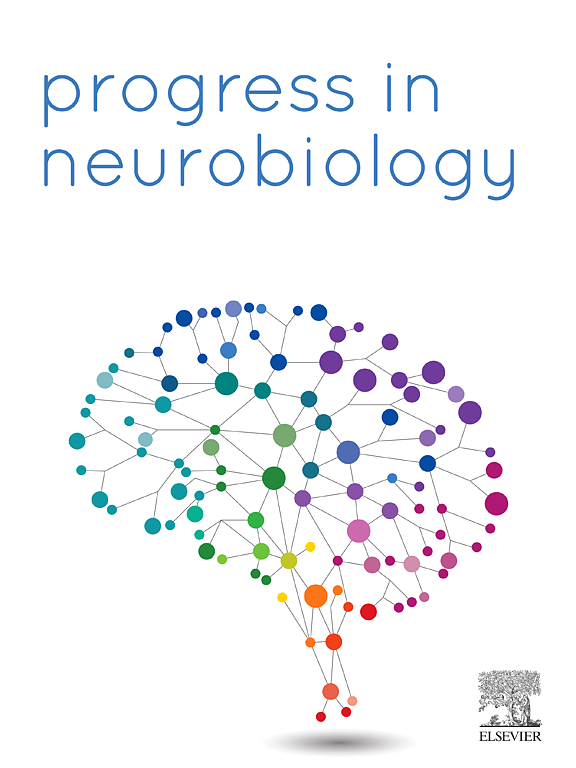应激诱导的外周血B细胞血红素代谢紊乱与雄性小鼠抑郁样行为有关
IF 6.1
2区 医学
Q1 NEUROSCIENCES
引用次数: 0
摘要
重度抑郁症(MDD)是一种常见的精神疾病,复发率高。目前大多数治疗抑郁症的药物主要通过调节中枢神经系统(CNS)中的神经递质来达到抗抑郁效果。然而,几乎一半的重度抑郁症患者不能从这些现有的治疗中充分受益。因此,迫切需要寻找新的治疗靶点来治疗重度抑郁症。据报道,外周B淋巴细胞是应激性抑郁症发生的主要因素。然而,外周B细胞在MDD中的病理作用和潜在的调节机制尚未很好地确定。在这里,我们发现外周B细胞在暴露于慢性不可预测的轻度应激(CUMS)后显著浸润到雄性小鼠的中枢神经系统。将来自CUMS小鼠的B细胞过继移植到B细胞缺陷的雄性小鼠中,可显著诱导比来自对照小鼠的B细胞过继移植更严重的抑郁症状。B细胞的缺乏保护雄性小鼠免受cums诱导的神经炎症和抑郁样行为。有趣的是,CUMS小鼠的病理性B细胞以血红素生物合成增加为特征,而其抑制可以改善接受CUMS小鼠病理性B细胞的B细胞缺陷小鼠的抑郁样行为。我们的研究结果表明,B细胞中的血红素生物合成在抑郁症的发病机制中起着关键作用,并表明这些具有高血红素特征的病理B细胞可能是MDD精准医学方法发展的一个有希望的免疫靶点。本文章由计算机程序翻译,如有差异,请以英文原文为准。
Stress-induced heme metabolic disorder in peripheral B cells contributes to depressive-like behaviors in male mice
Major depressive disorder (MDD) is a common and burdensome psychiatric illness with high rates of recurrence. Most of the current therapeutic drugs for depression mainly achieve their antidepressant effect by tuning the landscape of neurotransmitters in the central nervous system (CNS). However, almost half of patients with MDD cannot fully benefit from these available treatments. Consequently, it is urgent to find novel therapeutic targets for the treatment of MDD. Peripheral B lymphocytes have been reported as a major contributor to the occurrence of stress-induced depression. However, the pathological role and underlying regulatory mechanism of peripheral B cells in MDD have not been well established. Here, we show that peripheral B cells are significantly infiltrated into the CNS of male mice after exposure to chronic unpredictable mild stress (CUMS). Adoptive transfer of B cells from CUMS mice into B-cell-deficient male mice could significantly induce higher severity depressive symptoms than adoptive transfer of B cells from control mice. The lack of B cells protects male mice from CUMS-induced neuroinflammation and depressive-like behaviors. Interestingly, the pathological B cells in CUMS mice are characterized by increased heme biosynthesis, whereas its inhibition can ameliorate depressive-like behaviors in B-cell-deficient mice that received pathological B cells from CUMS mice. Our findings suggest a critical role of the heme biosynthesis in B cells for contributing to the pathogenesis of depression and indicate that these pathological B cells featuring high heme may be a promising immune target for the development of precision medicine approaches in MDD.
求助全文
通过发布文献求助,成功后即可免费获取论文全文。
去求助
来源期刊

Progress in Neurobiology
医学-神经科学
CiteScore
12.80
自引率
1.50%
发文量
107
审稿时长
33 days
期刊介绍:
Progress in Neurobiology is an international journal that publishes groundbreaking original research, comprehensive review articles and opinion pieces written by leading researchers. The journal welcomes contributions from the broad field of neuroscience that apply neurophysiological, biochemical, pharmacological, molecular biological, anatomical, computational and behavioral analyses to problems of molecular, cellular, developmental, systems, and clinical neuroscience.
 求助内容:
求助内容: 应助结果提醒方式:
应助结果提醒方式:


